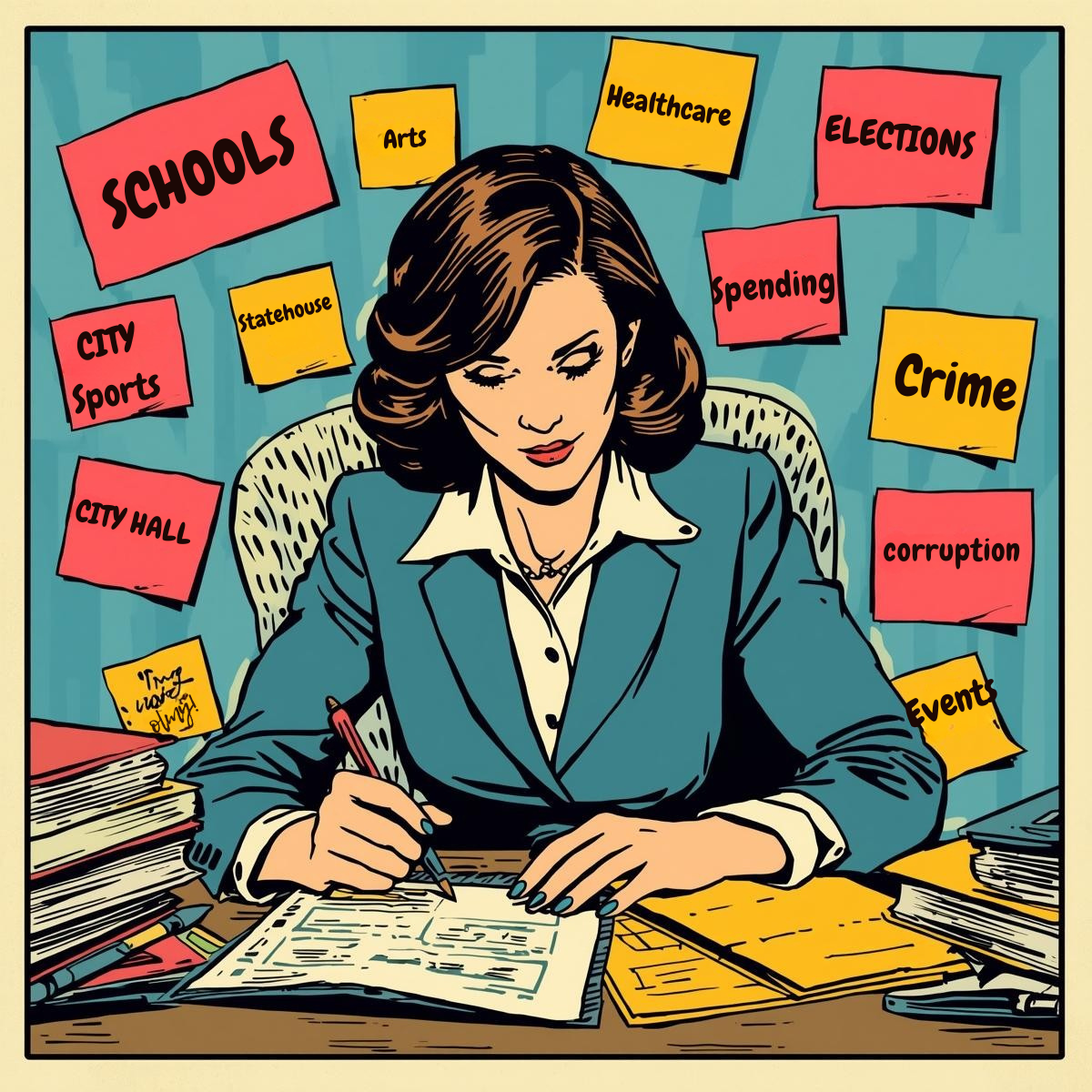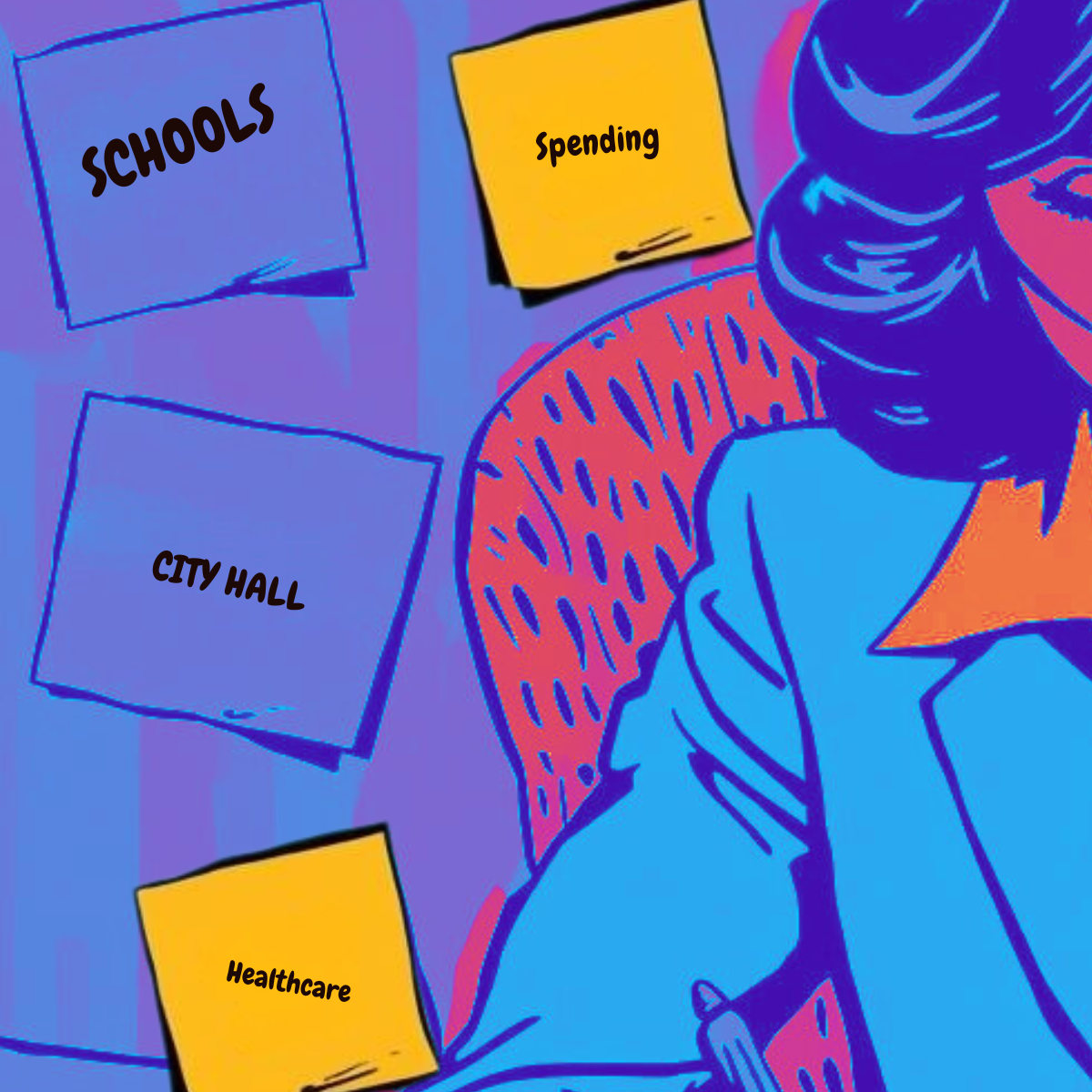With limited staff and time, editors and reporters weigh community needs, resources, and urgency to decide which stories make the news — and which don’t
By Paul Cuno-Booth — Granite State News Collaborative
Should we chase down this tip? Is this meeting worth covering? How can we shed new light on this issue?
Editors and reporters face those kinds of questions every day. So how do they decide what to cover — and how to cover it?
“A question I often get asked is, ‘What is the one thing that you wish everybody knew about the newspaper, but they don't?’” said Julie Hirshan Hart, editor of the Laconia Daily Sun. “And my answer is always, ‘We want to cover everything. We just don't have the resources. You know, if we could cover every story idea that comes in, we would.’ ”
Some of the coverage depends on the type of outlet and the audience it serves. A statewide news outlet might pay more attention to state-level policy stories or issues facing multiple communities across the state, while a local newspaper is going to keep a closer eye on the city council.
Hirshan Hart said story ideas can come from anywhere — reporters, editors, other staff members at the news organization, and tips from community members and sometimes confidential sources. Then, it’s a matter of prioritizing how to use her limited reporting staff, with two reporters covering 18 Lakes Region communities.
“Is something time-sensitive? Is something happening for the first time? Is something happening in more than one community?” she said. “And I would say we just put our heads all together and sort through, what can we do now? What can we maybe hold for later?”
Laconia and the neighboring towns of Belmont, Meredith and Gilford make up the core of the newspaper’s coverage area, so they’re the focus of more coverage than other communities in its market. Reporters and editors are also guided by which issues are most important to community members.
For instance, she said housing — including housing insecurity and development — and lake health and conservation are big issues locally right now.
“Those are stories that we're particularly interested in,” she said.
At the Berlin Daily Sun, reporting resources are even more limited; editor Lisa Connell is the only full-time journalist.
Connell said she always covers the city council meetings in Berlin, as it’s the biggest community and only city in the region. She also monitors school boards and reports on major crimes.
“It's really like the bread and butter of town government, because I just feel a real obligation to getting correct information out there,” she said.
Connell keeps an eye on local Facebook groups, and said that can inform her coverage. If she sees that false or misleading information about local issues is circulating in the community, she’ll do her best to correct the record.
“There's a lot of incorrect information out there,” she said. “So if those questions come up in a city council meeting … I am careful to correct the information in my story
At the Concord Monitor, each reporter is responsible for covering certain towns, as well as particular topic areas such as education or health. Stories often come from reporters paying attention to those beats and then discussing what to prioritize with their supervisor, said editor Jonathan Van Fleet. Members of the public can also send in ideas and tips.
“There's a fair amount of stories that we choose not to pursue,” he said. “If somebody makes wild claims that are very difficult to substantiate. Or if somebody says, regarding police accountability for example, ‘This bad thing happened to me,’ and they have filed no paperwork, no complaints, no anything — well, we tell them that maybe it's better that they speak to a lawyer instead of the newspaper.”
The Monitor also has a reader advisory board, which meets monthly. Van Fleet said that’s a good forum for big-picture conversations about how and why the paper covered (or didn’t cover) certain issues.
Those editorial decisions aren’t going to make everyone happy all the time. For example, Chichester has had a “revolving door” of town administrators. Van Fleet said the selectmen don’t want to talk to the Monitor’s reporter anymore because they’re tired of her writing about it.
“There's almost fatigue from some communities like, ‘Why do you keep covering this issue?’” he said. But of course, it’s important for the paper to cover it, “because it's the biggest issue in town in terms of how town government is functioning or not.”
Alongside hard news, Hirshan Hart of the Laconia Daily Sun said she looks out for human interest stories that celebrate positive things in the community.
“We're particularly always interested in people stories,” she said. “If somebody did something cool. You know, not necessarily just the president of the Rotary Club, but somebody's neighbor down the street who did a kind deed for somebody in the community.”
This story is part of Know Your News, a NENPA Press Freedom Committee initiative on why the First Amendment, press freedom, and local news matter. Don’t just read this. Share it with one person who doesn’t usually follow local news — that’s how we make an impact. Learn more at [WEBSITE].
NH Partners Version:
This story is part of Know Your News — a Granite State News Collaborative and NENPA Press Freedom Committee initiative on why the First Amendment, press freedom, and local news matter. Don’t just read this. Share it with one person who doesn’t usually follow local news — that’s how we make an impact.
Read the Full Series Here


